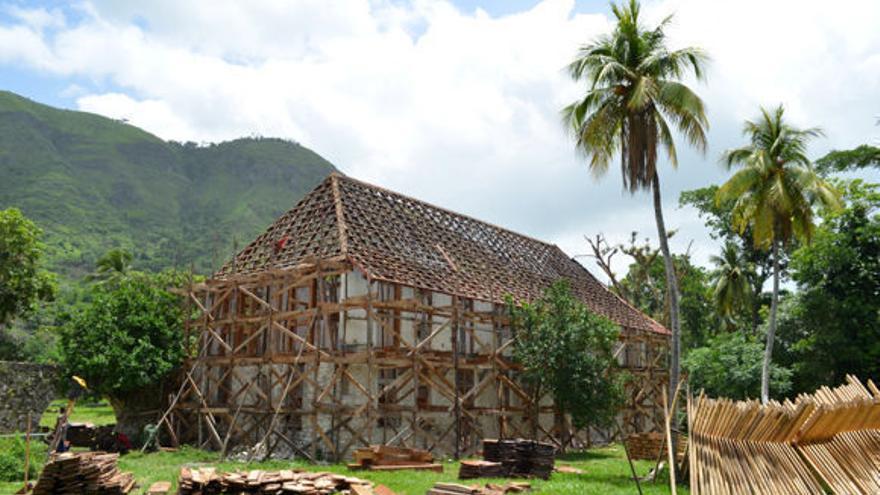
![]() 14ymedio, Madrid, November 10, 2023 — The French company Malongo committed this Thursday with the state agroforestry company Gran Piedra Baconao, from Santiago de Cuba, to invest in coffee production on the Island. The agreement was signed on the National Day of France of the International Fair of Havana (Fihav), which concludes this Friday.
14ymedio, Madrid, November 10, 2023 — The French company Malongo committed this Thursday with the state agroforestry company Gran Piedra Baconao, from Santiago de Cuba, to invest in coffee production on the Island. The agreement was signed on the National Day of France of the International Fair of Havana (Fihav), which concludes this Friday.
The project aims to develop the area of the Santiago town of Ramón de Las Yaguas, in the municipality of Songo la Maya, as Malongo’s own director, Jean Pierre Blanc, told state television, to increase coffee bean productivity.
The old coffee farm La Fraternidad is located in the same place and dates from the end of the 18th century. Its ruins have been restored for years with money from the European Union and the Malongo firm itself.
It was precisely the French who founded the coffee plantation, in 1791, after fleeing the Revolution of Saint Domingue (1791-1804) and the “black Jacobins” in Haiti. The name of the estate refers to one of the elements of the French motto of 1789 (“liberté, egalité, fraternité”: freedom, equality, fraternity).
“It is a complete business project that requires foreign investment, training and technology transfer to raise the quality of the coffee that will be produced and that will then be marketed abroad,” explained the official Cuban News Agency. The product that will come out of these facilities, then, will not be for domestic consumption but for export, despite the shortage of coffee in the Cuban market.
It is a complete business project that requires foreign investment, training and technology transfer to raise the quality of coffee
Malongo promotes itself as a “specialist in organic and fair-trade coffees,” with a proposal for “top-end coffees, from the noblest terroirs, grown according to ancestral agricultural methods within small family plantations.”
Similarly, Lavazza, one of the most prestigious coffee brands in the world, presented in Spain last month a premium organic coffee from the Island, where the Italian group has, since 2018, “a sustainable development program” in collaboration with several institutions and local authorities to reactivate the cultivation of the bean.
Lavazza said in its presentation that its collaboration with Cuba “takes care of the farmers, promotes the role of women and young people, helps the environment in terms of conservation of forests and the exchange of good agricultural practices.” It has offered specific training to local producers “in the implementation of a controlled fermentation process in the harvest of robusta [a type of coffee].”
Also, within the framework of the Fihav, the French ambassador in Havana, Laurent Burin des Roziers, celebrated the commercial relations between Cuba and his country, and he highlighted the presence on the Island of companies such as SGC, Robertet, Stratégie Bois, Eximes Caribe S.L, Serfer Kinetrol, Becsol, Venus Enterprises and Cintra Logist S.L.
For her part, Ana Teresita González Fraga, Deputy Minister of Foreign Trade and Foreign Investment, recalled that France is “one of our main partners on the European continent and the fourth on a global scale, which shows the good state of diplomatic relations between the two peoples for 120 years.”
Translated by Regina Anavy
____________
COLLABORATE WITH OUR WORK: The 14ymedio team is committed to practicing serious journalism that reflects Cuba’s reality in all its depth. Thank you for joining us on this long journey. We invite you to continue supporting us by becoming a member of 14ymedio now. Together we can continue transforming journalism in Cuba.
